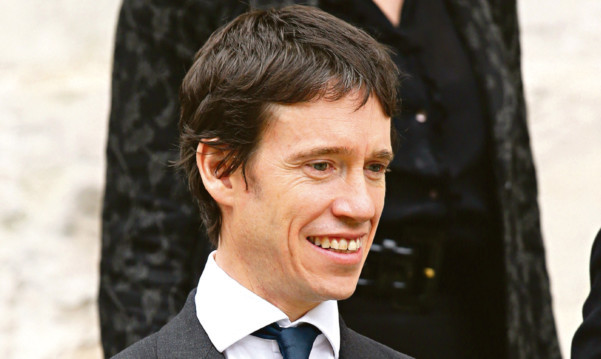
Westminster is changing gears in independence engagement.
David Cameron’s speech on Friday invoking the Olympic spirit and the Union Jack would have been more red, white and bleurgh to Scottish Nationalists hoping he’s on the losing side come the September vote on separation.
But it was only the latest sign that Westminster is increasingly engaging with the referendum.
The PM’s latest intervention was aimed at an audience in England, Wales and Northern Ireland, urging folk to tell Scottish friends and family to stick with the union. It followed two recent debates in parliament on the issue.
The Lords named their session “Implications for the Rest of the UK of Scottish Separation”. They could hardly call it a debate since there was no-one in the chamber arguing for independence. The SNP don’t nominate peers.
There’s a theory that nationalists only want independence now because that would allow them to reward their washed-up politicians with swanky ambassadorships around the world.
Other parties bump their grandees up to the Lords. It’s only since the advent of the Scottish Parliament’s current incarnation that the SNP has had retired members in any numbers and, with nothing to do, former greats can get grouchy. Some of Alex Salmond’s fiercest critics are former SNP bigwigs like Jim Sillars and Gordon Wilson.
The Lords debate saw a series of political ghosts rising from their graves to criticise their elected counterparts.
Best among them was Lord MacGregor who confessed that, despite being a Scot, he bagged a Norfolk seat when he was a Tory MP on account of the local party’s liking for his “lovely wife”.
Last week the Commons took up the independence baton with Glasgow MP Willie Bain small man, big majority bagging a backbench debate on Scotland’s Place in the United Kingdom.
Dozens of MPs spoke and there were some good contributions. Two to be precise, from hip young Labour gunslingers Gemma Doyle and Gregg McClymont. The fact these two share an office could be coincidental, or it could be they’ve been cribbing each other’s work.
Other speeches proved entertaining if not entirely incisive.
The SNP’s Pete Wishart, a former member of Scots rock band Runrig, put in a performance in praise of independence and demonstrated a fundamental misunderstanding of geology in promising that a yes vote would “ignite a tsunami” of positivity.
His nationalist colleague Angus MacNeil was slapped down by John Thurso Lib Dem grandee and, according to his own speech, descendant of the King of Orkney for peddling “fact-free emotional claptrap”.
When the Western Isles MP rose to protest Thurso patronised him in the way only true aristocrats can. “Do sit down, dear boy,” he purred.
Posh Tory Rory Stewart (below) treated the Commons to another of his otherworldly history lessons, starting his speech with reference to the Romans and working up to declaring “I love you!” to Scotland. Well, it is nearly Valentine’s Day.
Donning the shade of love was Labour’s David Hamilton who injected some colour into proceedings not with a speech as a whip he’s forbidden from contributing but with a dandyish get-up of pink shirt and matching socks.
Rory Stewart’s Conservative colleague Colonel Bob Stewart provided a paean to the pipes.
Colonel Bob led UN forces in Bosnia in the 1990s and revealed how he would use bagpipes to urge his frightened troops on though it wasn’t clear if his English soldiers were following the skirl or running away from it.
Either way, even the SNP have not demanded that in the event of independence England hand over any bagpipes it may be holding for decommissioning. Bob Stewart, like his Tory colleagues Rory and Iain, is a Scot representing an English seat.
Labour have a few Englishman in Scottish seats, such as Livingston’s Graeme Morrice. He introduced the phrase “super sparsity” to the debate to describe the scattered nature of Scotland’s population.
And there was a super sparsity of decent contributions to what could have been a vital debate.

Enjoy the convenience of having The Sunday Post delivered as a digital ePaper straight to your smartphone, tablet or computer.
Subscribe for only £5.49 a month and enjoy all the benefits of the printed paper as a digital replica.
Subscribe